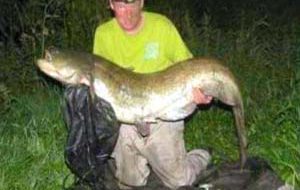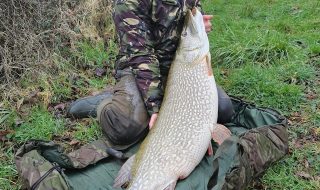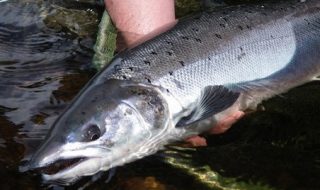The Angling Trust has reacted angrily to the news that the Environment Agency has approved a controversial application for a hydropower development on the River Thames at Abingdon without any meaningful protection for fish and fishing.
The development will involve three Archimedes screw turbines being installed into a mill stream, which will use most of the average flow of the river. The approval of the application has involved a catalogue of failures to protect the River Thames and its many fish species.
These are listed below:
Despite detailed objections being submitted to the original plans by angling clubs, consultative organisations and the Angling Trust, they have barely been modified before final approval was issued.
The Developer carried out no studies into the effects of diverting flow away from the weirpool through a side channel where the power will be generated. Weirpools are recognised by the Environment Agency as being important on rivers like the Thames but there is no information available about how this pool will be protected.
There is also no monitoring specified after construction despite the fact that the Environment Agency has admitted that it doesn’t understand the potential impact of these schemes on weirpools and has been promising to carry out impact studies on the Thames for the past 4 years. Yet no such study has yet been carried out. Proper monitoring of this site could have provided critical evidence, especially as the EA is promoting many schemes on its own weirpool structures elsewhere on the river.
The developer discussed the application with local canoe clubs, and will be required to reach an agreement with canoeists about flows. No such consultation has been carried out with anglers, who pay the Environment Agency £25 million in rod licence fees each year.
The Abbey Stream was an important nursery and winter refuge for many fish species but will now be home only to three huge turbines.
Mark Lloyd, chief executive of the Angling Trust said: “The purpose of the Environment Agency is meant to be protection of the environment rather than the promotion of damaging hydropower which makes a negligible contribution to tackling climate change. This is yet another example of shambolic management by the Environment Agency of the misguided efforts of companies to make a profit from generating small amounts of power from our rivers by milking Feed In Tariffs. The Agency should be standing up for fish and fishing, not waving through inadequate applications which have no monitoring in place before or after the development goes ahead.”
Dave Wales and Richard Knowles issued a statement on behalf of the Upper Thames Fisheries Consultative: “For years flow-loving species especially barbel have been in decline in the upper Thames. This decline has been recognised by the Environment Agency. Yet the Environment Agency has done everything possible to ensure that all hydropower applications are approved – despite the damage to the ecology of the river. They have failed to take on board justifiable concerns from very knowledgeable people about the damage to prime fish spawning habitat and impose no requirement for the developer to monitor the fish stocks to determine what damage is being done. There is a saying that ‘there are none so blind as those who do not want to see’.
“The Environment Agency has the power to insist that a detailed Environmental Impact Assessment is carried out – but in most cases they either choose not to use it or accept assessments that do not include any coherent assessment of fish populations or habitat. The Environment Agency strap line is ‘creating a better place’ and in the Abingdon proposal they claim that the turbines ‘will enhance the natural environment of the area’ – they plainly have no idea of the blot on the landscape they are allowing to be created. The Environment Agency should hang its head in shame at this willful destruction of spawning habitat and damage to fisheries.”





